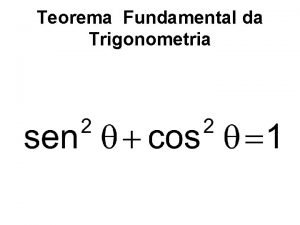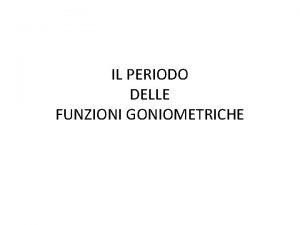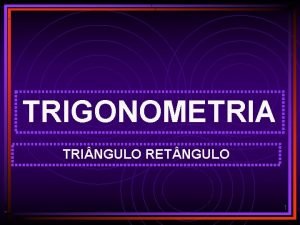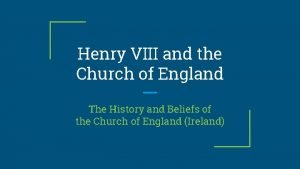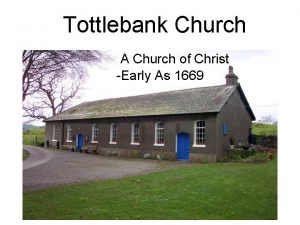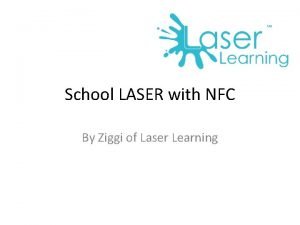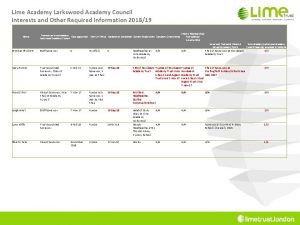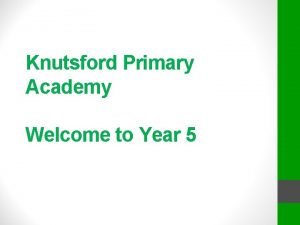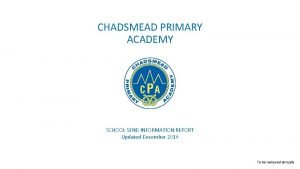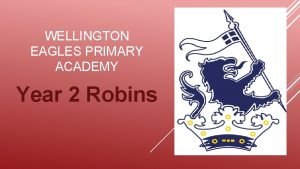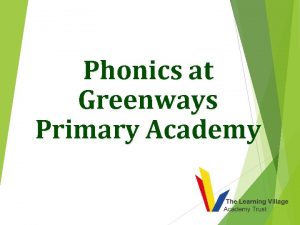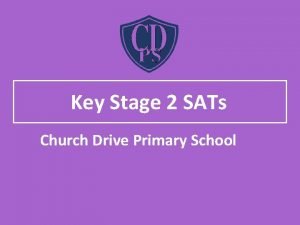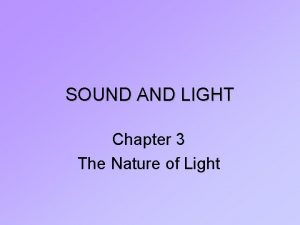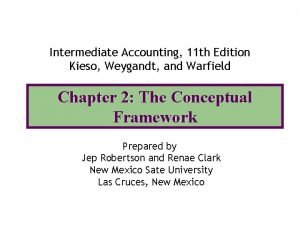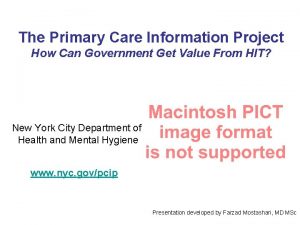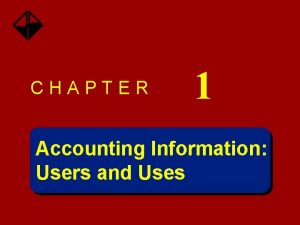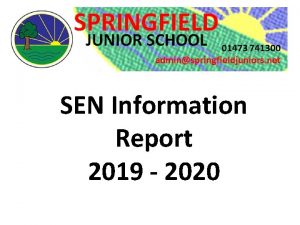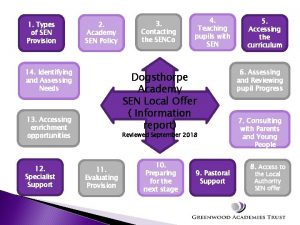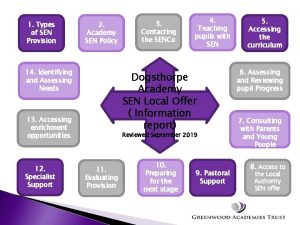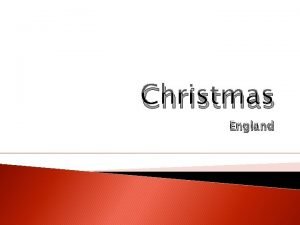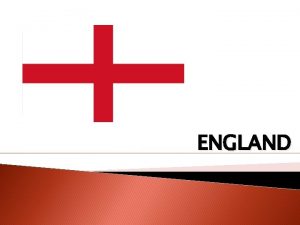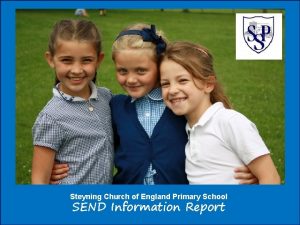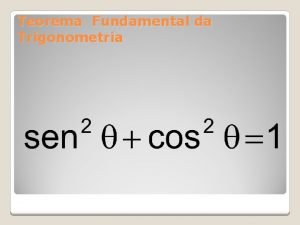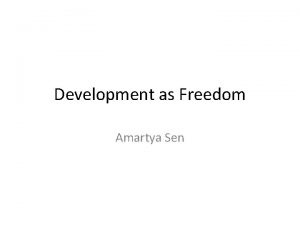Weasenham Church of England Primary Academy SEN Information




















- Slides: 20

Weasenham Church of England Primary Academy SEN Information Report 2020 -2021

Welcome to our SEND information report which is part of the Norfolk Local Offer for learners with Special Educational Needs and disabilities (SEND. ) All governing bodies of maintained schools. maintained nursery schools and Academies have a legal duty to publish information on their website about the implementation of the governing body’s policy for pupils with SEND. The information published must be updated annually.

The Norfolk Local Offer If you have specific questions about the Norfolk Local Offer please look at the Frequently Asked Questions can be found on the Norfolk County Council, SEND changes website http: //www. norfolk. gov. uk/Childrens_services /Special_educational_needs_(SEN)/SEND_chan ges/index. htm

The SEN Team within our school is: Federation SENDCo- Rachel Felton Contact details: senco@weasenham. norfolk. sch. uk 01328 838365 Executive Head Teacher- Belinda Allen Contact details: head@weasenham. norfolk. sch. uk 01328 838365 SEND Governor- Steve Boyce Contact details: via school office or 01328 838365

At Weasenham Church of England Primary Academy, we value: Learning for all. At Weasenham Church of England Primary Academy we believe in participation for all. We believe that every child has individual and unique needs and strengths. All teachers are teachers of special educational needs. We want all adults and children to participate in learning and we celebrate all members of our community. We want to create an inclusive culture in our Academy and we aim to be responsive to the diversity of children’s backgrounds, interests, experience, knowledge and skills. We value high quality teaching for all learners, including vulnerable groups and actively monitor teaching and learning in the Academy. For more information on our approach please see our teaching and learning policy. We aim to create a learning environment, which is flexible enough to meet the needs of all members of our Academy community. We monitor progress of all learners; staff continually assess ensuring that learning is taking place. Our whole Academy system for monitoring progress includes regular pupil progress meetings, and staff engage in coaching and supervision.

To use our best endeavours to secure special educational provision for pupils for whom this is required, that is “additional to and different from” that provided within the differentiated curriculum, to better respond to the four broad areas of need: • Communication and interaction, • Cognition and learning, • Social, mental and emotional health, • Sensory/physical.

Our SEN Profile • Our SEND profile for 2020 -21 shows that we have 26. 8% of children (11/41) identified as having SEND, and 0% (0/41) of those have a Education, Health and Care Plan. -14. 6% (6) of children are identified as having SEND linked to Cognition and Learning -4. 9% (2) linked to Social, Medical and Emotional Health -4. 9% (2) linked to Communication and Interaction -2. 4% (1) linked to Physical and Sensory

How do we identify SEND? “A child or young person has SEND if they have a learning difficulty or disability which calls for special educational provision to be made for them. A child of compulsory Academy age or a young person has a learning difficulty or disability if they: have a significantly greater difficulty in learning than the majority of others of the same age: or have a disability which prevents or hinders them from making use of educational facilities of a kind generally provided for others of the same age in mainstream Academies or mainstream post-16 institutions. ” SEN Cof. P 2014 If a learner is identified as having SEND, we will provide provision that is ‘additional to or different from’ the normal differentiated curriculum, intended to overcome the barrier to their learning This does not mean that all vulnerable learners have SEND. Only those with a learning difficulty that requires special educational provision will be identified as having SEND. We are committed to ensuring that all learners have access to learning opportunities, and for those who are at risk of not learning, we will intervene.

How does our Academy know if children need extra support? We know when a pupil needs support/help if: – Concerns are raised by parents/carers, external agencies, teachers, the pupil’s previous school or the pupil themselves, regarding – concerns relating to inadequate levels of progress or inclusion. – Screening, such as that completed on entry or as a result of a concern being raised, indicates gap in knowledge and/or skills. – Whole school tracking of attainment outcomes indicates lack of expected rate of progress. – Observation of the pupil indicates that they have additional needs – SENDCo supporting staff in identifying barriers to learning. Class teachers have a crucial role in identifying pupils with SEN and are the first point of contact for parental concerns.

Who else can help children in our Academy? The agencies used by the Academy include: • Verbatim- who have a range of different therapists, specialist teacher and phycologists along with other professionals. • ASD specialist support assistant team, • access CAMHS (Child & Adolescent Mental Health Service) • Attendance Officers • ATT, Access through technology services. (Professional or medical referral only) • Virtual Academy for Sensory support, to support pupils with hearing/visual Impairment • Children’s Therapy Team (Speech & Language/Occupational/physiotherapy) • School nurse • School 2 School support • Specialist Resource Bases (SRBs)

What we do to Support Learners with SEND? All children with special educational needs, including those who are looked after children (LAC), with special educational needs will be supported by: • • • First Quality teaching- Every teacher is required to adapt the curriculum to ensure access to learning for all children in their class. Our Teachers will use various strategies to adapt access to the curriculum, this will include: - differentiated planning -Visual timetables/sand timer/fidget toys -Writing frames -I-pads, laptops or other alternative recording devices -Peer buddy systems -Positive behaviour rewards system -workstation -PATHS -Norfolk Steps -Pivotal The type of support is dependent on the individual learning needs, and is intended to enable access to learning and overcome the barrier to learning identified. Children identified with a SEN need will receive a Learning Plan (LP), which will set out targets and provide information on resources and provision the child will receive to help met these targets. Children with SEN needs will share their views through a one page profile. These profiles share the child’s strengths and areas of difficulties, and what support the child feels they need to succeed.

Interventions Your child may also receive interventions. These interventions include: -Sound Discovery -Elklan (Speech and Language) and other Speech and Language activities. -1 st Class Maths -Power of 2 -Toe by Toe -Social Stories -Literacy Toolbox -Numicon - Seeing Red/There’s a Volcano in my Tummy -Targeted literacy or numeracy interventions led by staff in small groups or 1: 1 -ARROW -Hand Skills - Trauma informed activities - Sensory circuits These are all on the provision maps which are updated termly.

Funding for SEND Weasenham Church of England Primary Academy receives funding directly to the Academy from the Local Authority to support the needs of learners with SEND, including resources. The amount of funding we received for 2020 -2021 was £ 18, 506. As an academy, we are able to apply for High needs top up funding, which is held by Norfolk Local Authority. Please see https: //csapps. norfolk. gov. uk/csshared/ecourier 2/f ileoutput. asp? id=22199 for more detail on how the funding is allocated.

How do we Find Out if this Support is Effective? Monitoring progress is an integral part of teaching and leadership within Weasenham Church of England Primary Academy. We follow the ‘assess, plan, do, and review’ model and ensure that parents/carers and children are involved in each step. Before any additional provision is selected to help a child, the SENCO, Head of School, teacher, parent/carer and learner, agree what they expect to be different following this intervention. A baseline will also be recorded, which can be used to compare the impact of the provision. Children, parents/carers and their teaching and support staff will be directly involved in reviewing progress. This review can be built in to the intervention itself, or it can be a formal meeting held, where we all discuss progress and next steps and recorded on a individual Learning Plan. These reviews are carried out termly. If a learner has an Education Health and Care Plan (EHC plan) the same review procedures take place, but the EHC plan will also be formally reviewed annually.

• The SENCO and Head of School regularly monitors interventions and the teaching of SEN children within the classroom setting. Offering advice and support where needed to ensure the needs of learners are met. • The SENCO and SEN governor meet termly to discuss SEN within the academy and federation. • The SENCO collates the impact data of interventions, to ensure that we are only using interventions that work. • Progress data of all learners is collated by the whole Academy and monitored by teachers, senior leaders and Governors. Our Academy and cluster data is also monitored by the Local Authority and Ofsted.

What training do the staff supporting children and young people with SEND undertake? • In the last two years school staff have received a range of training at three levels; awareness, enhanced and specialist. Awareness training has been provided to all staff on: – – Attachments Dyslexia Norfolk Steps Up and On training. Lots of Online CPD including, ADHD, Autism, Speech and Language. Enhanced training has been provided to Higher Level Teaching Assistants (HLTA) and the SENCo on: – Attendance at the termly SENCo Update – Attending the SEN conference. – Trauma Informed Schools Training. Specialist training has been provided to the SENCo on: – The school has regular visits from SEN specialist teachers, Psychologist and therapy team from Verbatim who provide advice to staff support the success and progress of individual pupils. – The NHS Speech Language Therapist visits termly to assess and plan support for targeted pupils. These programmes are then delivered by a trained Teaching Assistant. – Support from the School 2 School service to support challenging behaviour.

Other Opportunities for Learning All learners should have the same opportunity to access extra curricular activities. At Weasenham Church of England Academy in 2020 -21 we are offering a range of additional clubs and activities. These can be found on our Academy web page or by contacting our Academy Office. We are committed to making reasonable adjustments to ensure participation for all, . All staff at Weasenham Church of England Primary Academy work within the Equality Act 2010. This legislation places specific duties on Academies / Schools, settings and providers including the duty not to discriminate, harass or victimise a child or adult linked to a protected characteristic defined in the Equality Act and to make ‘reasonable adjustments. ’ The Equality Act 210 definition of disability is: “A person has a disability for the purposes of this Act if (s)he has a physical or mental impairment which has a substantial and long-term adverse effect on his ability to carry out normal day-to day activities. ” Section 1(1) Disability Discrimination Act 1995 This definition of disability in the Equality Act includes children with long term health conditions such as asthma, diabetes, epilepsy, and cancer. Children and young people with such conditions do not necessarily have SEND, but there is a significant overlap between disabled children and young people and those with SEND. Children and young people may therefore be covered by both SEND and disability legislation.

Preparing for the next step • Transition is a part of life for all learners. This can be transition to a new class in the Academy, having a new teacher, or moving on to another Academy, training provider or moving into employment. Weasenham Church of England Primary Academy is committed to working in partnership with children, families and other providers to ensure positive transitions occur. • Planning for transition is a part of our provision for all learners with SEND. Moving classes will be discussed with the parents and child at their summer term review meeting. Transition to a secondary school of children with an EHCP will be discussed in the summer term of their Year 5, to ensure time for planning and preparation. • The SENDCo liaises very closely with the secondary schools with regards to transition for children with SEN-D. There maybe extra transition days/activities for the children to feel confident to move onto their next stage of their academic journey

Have your say Weasenham Church of England Primary Academy is part of the community. We can shape and develop provision for all of our learners ensuring achievement for all. This SEND report declares our annual offer to learners with SEND, but to be effective it needs the views of all parents/carers, learners, governors and staff. So please engage with our annual process to ‘assess plan, do and review’ provision for SEND. If you have any concerns, please see our compaints policy. https: //hopefederation. org. uk/wpcontent/uploads/2019/06/S 9 -Complaints-Procedure. pdf

Useful links • Our SEND section on the Federation website https: //hopefederation. org. uk/rudham-send/ • Norfolk’s Local Offer- www. norfolk. gov. uk/SEND • Parent Partnership- www. norfolkparentpartnership. org. uk 01603 704070 • www. dfe. gov. uk • Equality Act-https: //www. gov. uk/equality-act-2010 -guidance • The Special Needs and Disability Code of Practice: 0 -25 yearshttps: //www. gov. uk/government/uploads/system/uploads/attach ment_datafile/325875/SEND- Code_of_Practice_June 2014. pdf
 Sen cos tg
Sen cos tg Determinare il periodo di una funzione
Determinare il periodo di una funzione Tangente de 0 90 180 e 360
Tangente de 0 90 180 e 360 Bayram özünü bildi bileni anda buldu
Bayram özünü bildi bileni anda buldu Church of england beliefs
Church of england beliefs Tottlebank church of christ in england
Tottlebank church of christ in england Laser login lhpa
Laser login lhpa Larkswood primary academy
Larkswood primary academy Knutsford academy staff
Knutsford academy staff Chadsmead primary academy
Chadsmead primary academy Wellington eagles primary academy
Wellington eagles primary academy Greenways primary academy
Greenways primary academy Church drive primary school
Church drive primary school Church drive primary school homework
Church drive primary school homework Christ church primary school fenton
Christ church primary school fenton Crooms academy of information technology
Crooms academy of information technology The primary pigment colors are ____.
The primary pigment colors are ____. Intermediate accounting kieso
Intermediate accounting kieso Primary care information project
Primary care information project Primary users of accounting information are accountants
Primary users of accounting information are accountants Autobiography using primary sources
Autobiography using primary sources
